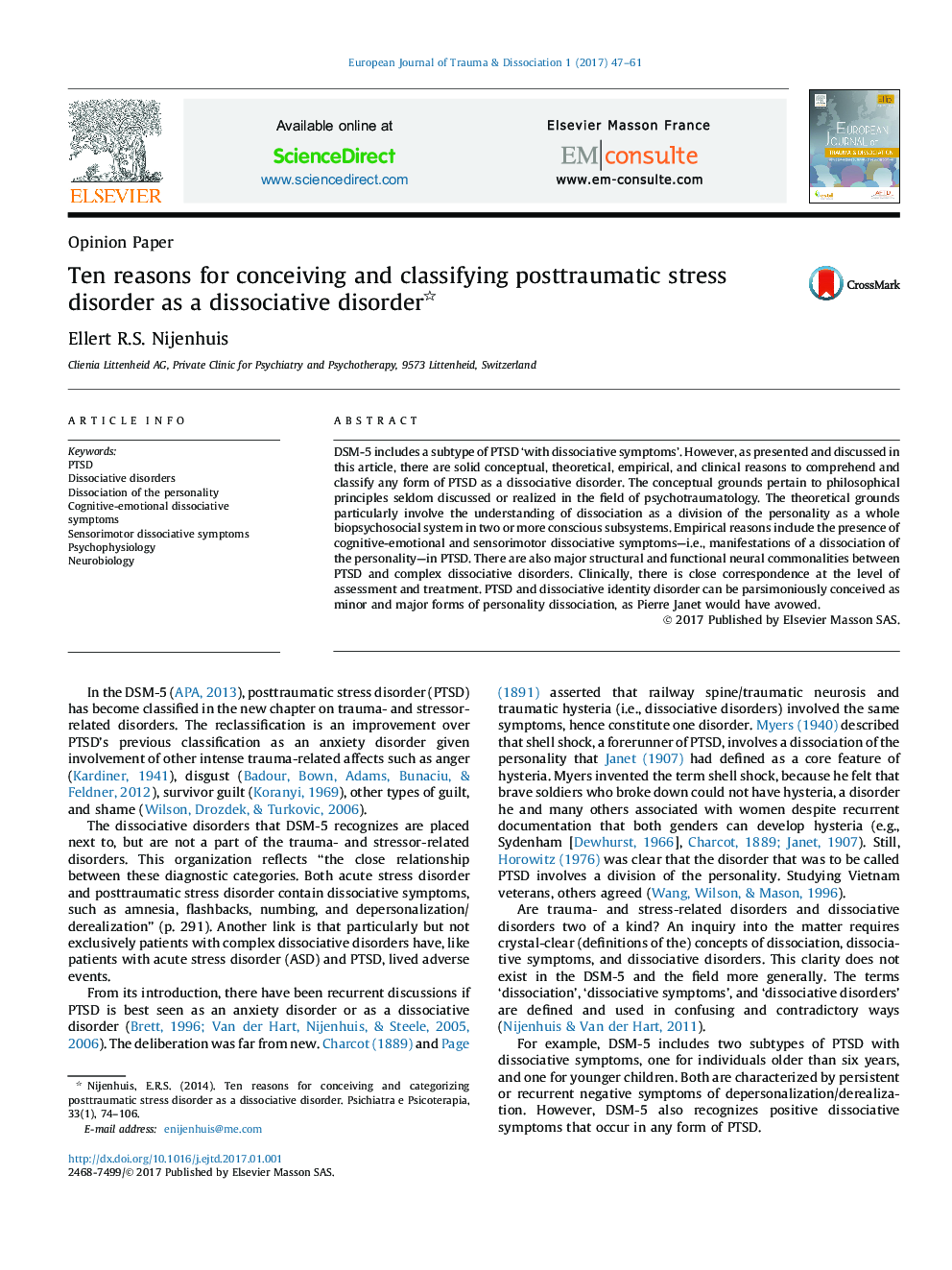| Article ID | Journal | Published Year | Pages | File Type |
|---|---|---|---|---|
| 8923471 | European Journal of Trauma & Dissociation | 2017 | 15 Pages |
Abstract
DSM-5 includes a subtype of PTSD 'with dissociative symptoms'. However, as presented and discussed in this article, there are solid conceptual, theoretical, empirical, and clinical reasons to comprehend and classify any form of PTSD as a dissociative disorder. The conceptual grounds pertain to philosophical principles seldom discussed or realized in the field of psychotraumatology. The theoretical grounds particularly involve the understanding of dissociation as a division of the personality as a whole biopsychosocial system in two or more conscious subsystems. Empirical reasons include the presence of cognitive-emotional and sensorimotor dissociative symptoms-i.e., manifestations of a dissociation of the personality-in PTSD. There are also major structural and functional neural commonalities between PTSD and complex dissociative disorders. Clinically, there is close correspondence at the level of assessment and treatment. PTSD and dissociative identity disorder can be parsimoniously conceived as minor and major forms of personality dissociation, as Pierre Janet would have avowed.
Related Topics
Life Sciences
Neuroscience
Cognitive Neuroscience
Authors
Ellert R.S. Nijenhuis,
